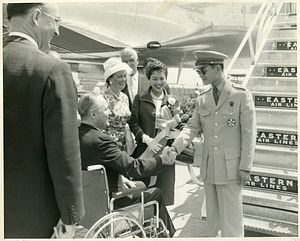Amid a sea of mourners dressed in black, Thailand’s revered King Bhumibol Adulyadej was cremated in Bangkok last week in a lavish event marked by pageantry and sorrow following his revered rule, which spanned seven decades. The cremation came amid a new era of uncertainty for Southeast Asia’s second-largest economy, which has been under military rule for over three years.
Throughout the day on Thursday, the focus was maintained on the 50-meter high Royal Crematorium where Bhumibol’s urn was placed atop a pyre modeled after the mythical Mt. Meru, the center of Thai-Buddhist and Hindu cosmology. The pyre provides a link between Heaven and Earth with King Bhumibol, the ninth head of the Chakri dynasty, considered divine by his many subjects.
About 13 million of them had paid their respects at the Throne Hall in Dusit Palace, where the monarch had laid in state since his death at age 88 on October 13 last year. At the palace, royals and dignitaries from around the world enjoyed front row seats as hundreds of thousands of people, young and old, bid farewell after a year of official mourning.
Millions more gathered at shrines around the country or watched on television as the procession got underway with mourners prostrating themselves before a 200 year-old, 42-tonne chariot carrying Bhumibol’s remains. A holiday was declared, public transport provided free of charge, and buildings along the parade route were draped in yellow marigolds (the color of the King) in a solemn ceremony expected to finally cost $90 million.
But few, if any, were complaining about the costs. Some mourners had camped out along the procession route for up to a week. Across Bangkok, people wore black and prayed. The Erawan shrine – the site of a 2015 terrorist bombing that left 20 people dead and 123 wounded – was popular among mourners.
As Naw Mar, a 45-year-old, put it as the parade began with as much spit and polish as the military could muster: “He paid attention to the old and the weak. And he went to the poor provinces in the south and north and made Thailand a modern nation. We love this King, we are proud of this King, he is like an angel and now he resides in heaven.”
The cremation did mark the end of an enormous era and was reminiscent of the funeral for the Cambodian king, Norodom Sihanouk, who died five years ago. He and Bhumibol emerged as senior figures as the Cold War evolved, and in the years that came after.
But Bhumibol’s son, King Maha Vajiralongkorn – who is expected to be coronated in December – faces a tough road ahead, along with his government headed by Prime Minister Prayut Chan-o-cha who seized power in a coup in 2014.
Analysts, who declined to be named, said Thais had already grown wary of restrictions imposed on political freedoms after the coup that ended years of street demonstrations caused by nasty divisions within Thai politics.
Some saw this as one way of ensuring a smoother transition of power in the monarchy following Bhumibol’s death, after a long illness. But with a year of mourning coming to an end, Prayut is expected to see increased calls for a return to a democracy and a general election that has been promised but repeatedly delayed.
“Whether that actually happens is the big question that will emerge over coming months,” one senior analyst said.
Luke Hunt can be followed on Twitter @lukeanthonyhunt
































